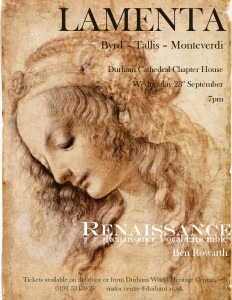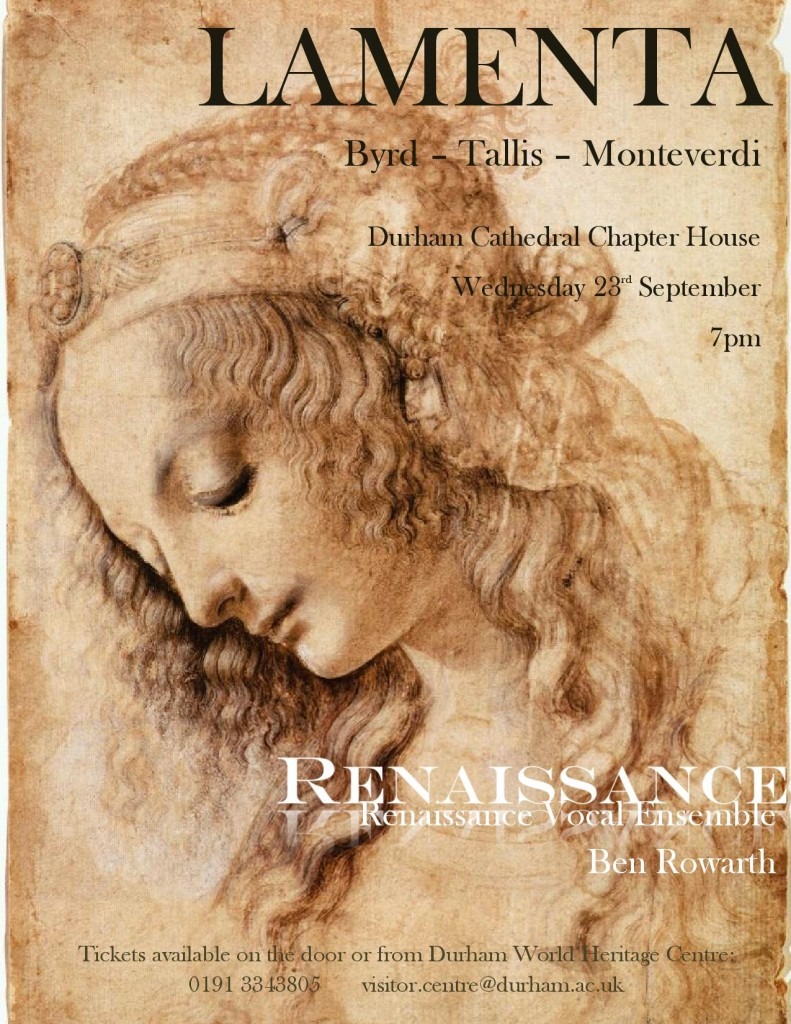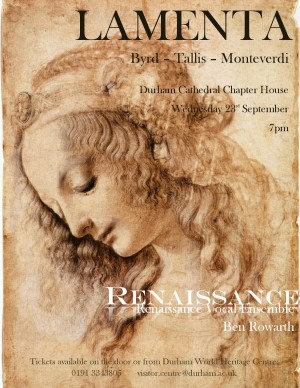 Last night’s concert in the Chapter House by Ben Rowarth’s ensemble Renaissance was another one of those programmes that resemble the puzzles where you have to get from one word to a completely different one, changing only one letter at a time. With the exception of a bit of stray Poulenc, the short programme stuck to the sixteenth century, illustrating the great contrast in vocal styles between sacred and secular, from England to Italy, taking us without pause in logical steps from the deeply religious purity through to very earthly passions.
Last night’s concert in the Chapter House by Ben Rowarth’s ensemble Renaissance was another one of those programmes that resemble the puzzles where you have to get from one word to a completely different one, changing only one letter at a time. With the exception of a bit of stray Poulenc, the short programme stuck to the sixteenth century, illustrating the great contrast in vocal styles between sacred and secular, from England to Italy, taking us without pause in logical steps from the deeply religious purity through to very earthly passions.
We began in the secret world of Catholic England, intruding into furtive recusant worship with the five singers seated in a close semi-circle to sing Te lucis ante terminum by Tallis, followed by the Kyrie from Byrd’s five part mass and two motets by Byrd. The arrangement of the singers made the sound incredibly focussed and intense, with the lower voices providing lots of resonance. I’ve heard Renaissance quite a few times now but I was startled all over again by the purity of their singing, particularly in the Tallis.
The temporal focus of the concert slipped for Poulenc’s Salve Regina but in amongst all the sixteenth century music it felt like music from beyond time – shimmering pure and transcendent in its own world. As he does so well, Ben Rowarth let the music create the emotional impact without any excessive theatrics – just clear, accurate singing. The Poulenc marked the transition from introspective music that reflected on sin and the eternal quest for purity to a more sensual religion. The Song of Songs was of course a cunning way for church composers like Victoria and Palestrina to sneak in some love music under the guise of adoring the Virgin Mary, and we were treated to two of Palestrina’s settings, sung with a delicious silkiness that really relished the erotic imagery of the texts. It was during this section of the concert that the singers began to stand up and spread out, as if they were emerging from their English darkness into Italian sunshine, although when the three men began to circle the two women whilst singing about breasts, it did rather suggest that they were musically leering at them.
From there we launched into the seriously carnal world of the Italian madrigal, plunging straight in to the twisted world of the notorious Carlo Gesualdo. Laboravi in gemitu meo was sung exquisitely; the tortuous rhythms and harmonies bouncing around in spots of colour and clearly giving the singers absolutely no difficulty whatsoever. More madrigals by Monteverdi and Gesualdo followed: I think this is the first time I’ve heard Renaissance singing secular music: it allowed for a little more character and individualism from the five voices, without ever losing the blend and balance. Monteverdi’s Piange e sospira came across as a tragic drama in miniature, and Riminati in pace ended the concert with heartbreak.









